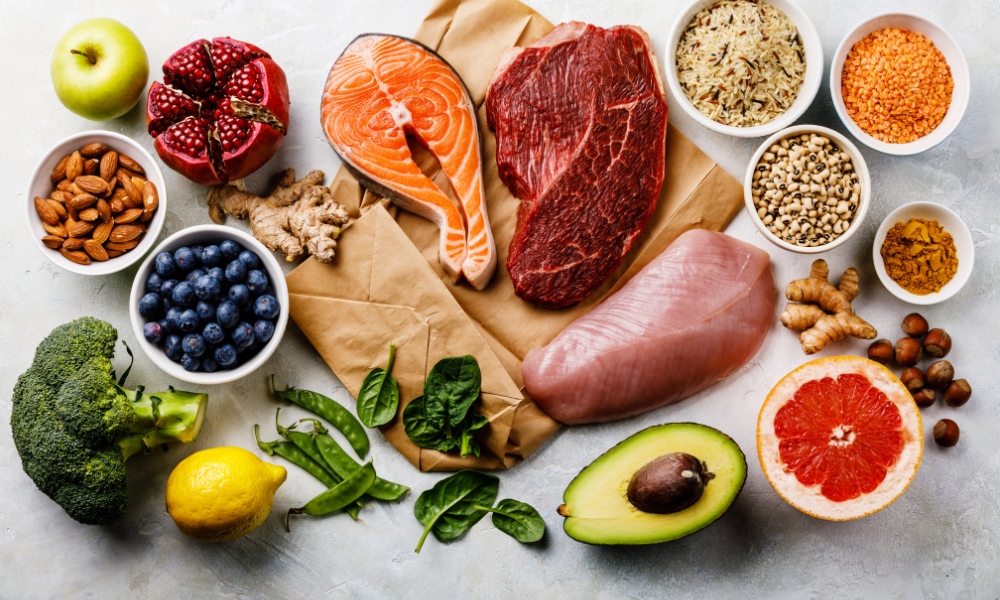Part One:
A groundbreaking, 2018 study published in the American Medical Association journal tracked the diets of roughly 69,000 people over the span of 4 years. The results? Those who ate the most organic food were 25 percent less likely to develop cancer. How is this even possible?
Conventionally grown, non-organic produce is laden with synthetic pesticides, herbicides, and fertilizers that have been linked to a host of health issues. Pesticides have been strongly associated with increased risk of many cancers, Alzheimer's and Parkinson's diseases, hormone disruption, gastrointestinal disorders, fertility problems, and autoimmune diseases. Many modern herbicides are classified as carcinogens, meaning there is enough evidence to conclude they can cause cancer in humans. Even low-level exposures can have adverse effects, especially for pregnant women and young children.
By eating organic, you avoid ingesting these harmful chemicals that build up in your body over time. In fact, a study by the US Department of Agriculture found that people who ate an organic diet had significantly lower levels of pesticide residues in their urine compared to those eating conventional foods.
In addition to being free of synthetic chemicals, organic farming prohibits genetically modified organisms (GMOs). The long-term health impacts of consuming GMOs are not yet fully understood, so many people choose to avoid them by eating organic.
Beyond avoiding harmful toxins, organic foods have been shown to be more nutritious. A major study published in the British Journal of Nutrition found that organic crops have higher concentrations of vitamins, minerals, and antioxidants like vitamin C, iron, magnesium, and phosphorus compared to conventional crops. This means, when you eat organic, you are eating food with a higher nutritional value.
Part Two:
When it comes to buying organic produce, not all fruits and veggies are created equal in terms of pesticide exposure. To help prioritize which items to buy organic, Environmental Working Group (EWG) analyzes data from the U.S. Department of Agriculture to create their yearly "Dirty Dozen" and "Clean Fifteen" lists.
The Dirty Dozen refers to the 12 types of produce that contain the highest amounts of pesticide residues, even after washing and peeling. For 2023, the Dirty Dozen list includes:
1. Strawberries
2. Spinach
3. Kale
4. Nectarines
5. Apples
6. Grapes
7. Bell Peppers
8. Cherries
9. Peaches
10. Pears
11. Celery
12. Tomatoes
These items are recommended to buy organic whenever possible. As discussed in the previous email, pesticides have been linked to various health issues like hormone disruption, brain/nervous system toxicity, cancer, and much more. Choosing organic avoids these toxic chemical exposures.
On the other hand, EWG's Clean Fifteen refers to produce least likely to hold pesticide residues:
1. Avocados
2. Sweet Corn
3. Pineapples
4. Onions
5. Papaya
6. Sweet Peas (Frozen)
7. Asparagus
8. Honeydew Melon
9. Kiwis
10. Cabbage
11. Mushrooms
12. Mangoes
13. Sweet Potatoes
14. Eggplant
15. Grapefruit
While still recommended, these "clean" items are lower risk if purchasing non-organic.
But it's not just produce - you'll also want to prioritize organic for animal foods.
Meat, Poultry & Dairy: Animals ingest pesticides from contaminated feed and grass. Recent studies have detected residues of herbicides, insecticides and heavy metals in non-organic meat, eggs and dairy products. Organic animal products prohibit these substances and meet higher animal welfare standards.
Fish: While wild-caught fish is low pesticide-risk, farmed fish have been found to contain residues from pesticide-contaminated feed. For farmed seafood, go organic whenever possible.
Additionally, numerous studies show organic animal products tend to be more nutritious - with higher levels of omega-3s, minerals, antioxidants, and other beneficial nutrients compared to conventional versions.
While organic foods often come with a higher price tag, you are getting a bigger nutritional bang for your buck. When you factor in the advanced farming practices, avoidance of persistent pesticides, higher animal welfare standards, and environmental benefits of organic agriculture, that higher price tag constitutes a worthwhile investment in your health. While the upfront cost is more, you truly get superior quality and nutritional value for your grocery dollars with organic choices.
Organic farming also supports environmental sustainability by reducing pollutants, preventing soil erosion, increasing soil fertility, and promoting biodiversity. So going organic - especially for the Dirty Dozen produce and animal products - is better for your health and the planet!

